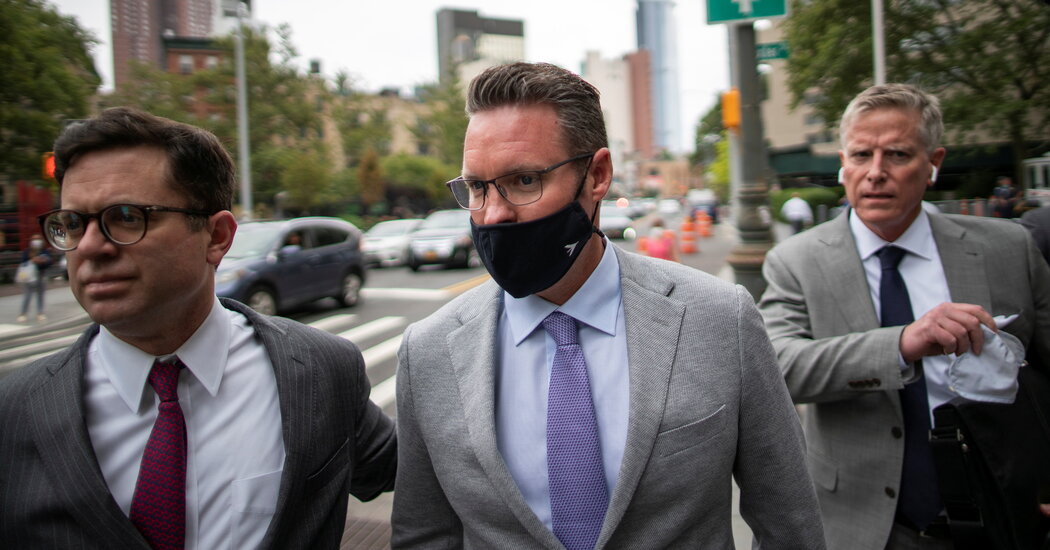Trial Begins for Truck Maker Accused of Duping Investors

The founder of Nikola Motor, a maker of electric trucks, went on trial on fraud charges on Monday in a case seen as a cautionary tale about the hazards of investing in companies that are not yet generating any sales or delivering any products.
The defendant, Trevor Milton, faces federal charges of fraud and securities fraud stemming from accusations that he exaggerated the company’s technology, leading to crushing losses for people who bought Nikola stock before it collapsed.
The trial is expected to last four or five weeks in U.S. District Court in Manhattan, where jury selection began Monday. Mr. Milton has pleaded not guilty. He is being represented by Marc Mukasey, who has represented the Trump Organization and Edward Gallagher, a member of the Navy SEALs who was accused of war crimes in Iraq.
In 2020, Nikola was briefly worth more on the stock market than Ford Motor amid investor fervor about the upstart’s potential to become the Tesla of the trucking industry.
Nikola’s shares fell sharply after reports that Mr. Milton had made false claims about Nikola’s technology, including producing a video in which a truck was rolled down an incline to make it look as if the company had a working prototype.
Read More on Electric Vehicles
- A Crucial Mine: A thousand feet below wetlands in northern Minnesota are ancient deposits of nickel, a sought-after mineral seen as key to the future of the U.S. electric car industry.
- Banning Gasoline Cars: California is leading the way in the push to electrify the nation’s car fleet with a plan to ban sales of new internal-combustion vehicles by 2035, but the rule will face several challenges.
- Inflation Reduction Act: The law extends tax incentives in an effort to steer more U.S. consumers toward electric cars. But new rules complicate the qualification process.
- Plug-In Hybrids: After falling behind all-electric cars, U.S. sales of plug-in hybrids have been surging. The high cost of electric cars and gasoline have given them an opening.
Mr. Milton soon resigned, and Nikola continues to operate. It has begun producing a battery-powered truck known as the Tre at a factory in Arizona and has delivered about 50 to dealers, a spokeswoman said. Nikola reported a net loss of $173 million for the three months through June on sales of $18 million.
Last year, Nikola agreed to pay a civil penalty of $125 million to settle a fraud investigation by the Securities and Exchange Commission. Nikola did not admit wrongdoing as part of the settlement.
Nikola shares traded recently around $5.40, down from a record close in June 2020 of almost $66.
The case is also seen as an example of the risks of investing in special purpose acquisition corporations, or SPACs, companies that list on the stock exchange before they have any assets. Nikola went public in 2020 by merging with a SPAC called VectoIQ Acquisition Corporation, avoiding some of the regulatory scrutiny usually applied to initial public offerings.
Once the rage on Wall Street, SPACs have lost much of their shine after many performed poorly.
With Tesla an exception, many electric vehicle makers have had trouble ramping up production or winning significant market share. Their chances of success are diminishing as traditional car and truck makers belatedly introduce battery-powered products.
In Nikola’s case, federal prosecutors contend, Mr. Milton promoted the stock in interviews and on social media in a deliberate attempt to attract less sophisticated, small-scale investors.
We “need to make sure we are getting retail investors on our side,” he said in an email to a Nikola board member a day before the company announced that it would merge with VectoIQ, according to the indictment against him.
Mr. Milton made numerous false statements, according to the indictment, claiming that Nikola had a fully functioning truck in 2016 when the vehicle lacked gears or a motor. The indictment also says Nikola posted videos online that appeared to show a prototype traveling along a road when it lacked power and was coasting down a hill.
In addition, according to the indictment, Mr. Milton claimed in 2020 that Nikola was developing a pickup, the Badger, “from the ground up” using its own technology. In fact, the government says, the technology came from third parties and a prototype Badger was built using parts from Ford F-150 pickups.
Mr. Milton later claimed in a podcast interview that the Badger would vanquish the F-150, prosecutors say.
At one point, he said on Twitter that the Badger would have a drinking fountain fed by waste water from its hydrogen fuel cell. But Mr. Milton had not discussed this feature with his engineers and later searched the internet to determine whether it was feasible, according to the indictment. (It apparently was not.)
In addition to building trucks, Nikola planned to build a network of hydrogen fueling stations for trucks powered by fuel cells. Mr. Milton claimed repeatedly that Nikola had already constructed stations that could generate their own hydrogen cheaply, the indictment says.
“Nikola had never obtained a permit for, let alone constructed, a hydrogen production station, nor had it produced any hydrogen,” the indictment says.
Small investors bore the brunt of the losses when Nikola shares plunged more than 40 percent in September 2020 after Mr. Milton’s resignation, according to the indictment. Some institutional investors, who “had more complete access to information about Nikola’s products and technology,” got out earlier, prosecutors say. These investors “were able to sell their stock for a significant profit.”
